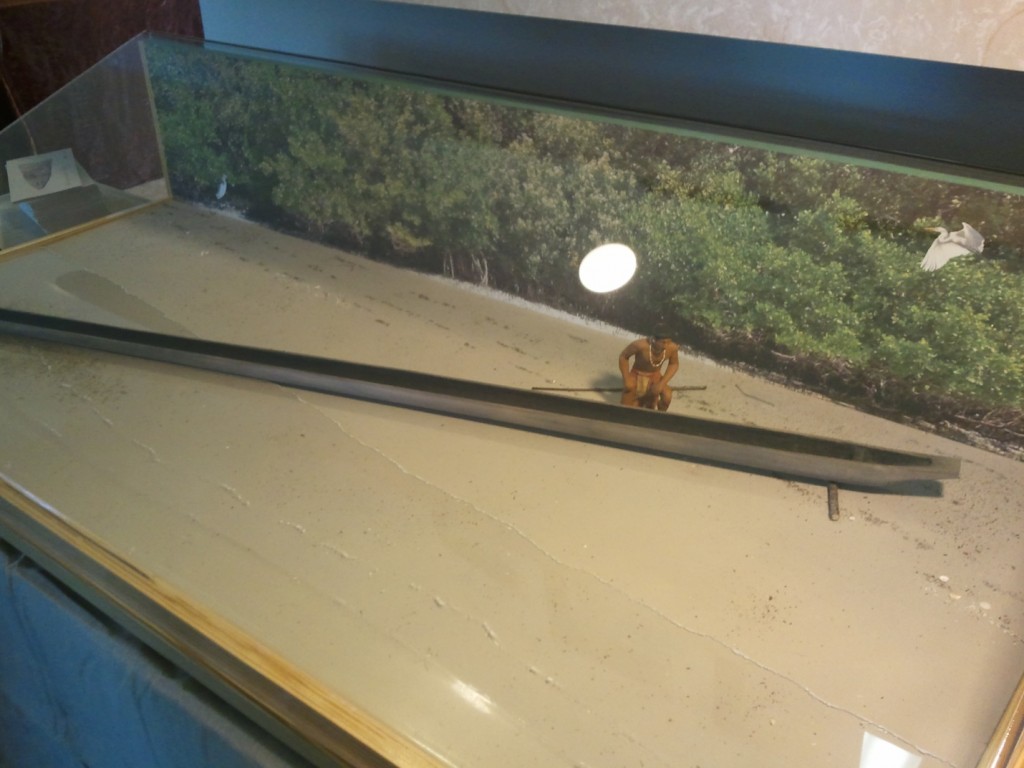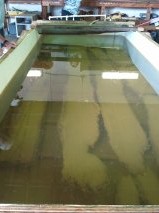
1,100 Year Old Canoe Discovered at Weedon Island
News & Politics November 21, 2012
Model of the discovered canoe.
by Tim Closterman
On March 1st, 2011, archaeologists, Friends of Weedon Island members, preserve staff and volunteers completed the excavation of a 1,100 year old prehistoric salt water canoe that was found within the Weedon Island Preserve boundaries.

That canoe is currently being soaked in Polyenthylene Glycol in a specially constructed conservation tank funded by the Friends of Weedon Island and overseen by Alliance for Weedon Island Archaeological Research and Education. Once this process is completed, the canoe will be reassembled and put on display at the Weedon Island Preserve Cultural and Natural History Center. The process is expected to take two to three years.
The excavation was a ten-year process that began when the canoe was first discovered in 2001 by Harold Koran, a Pinellas County local resident who shared his discovery with preserve staff. After the initial discovery, plans and project timelines were developed to undertake this project. Then, in 2007, an initial excavation was done to perform carbon dating, take measurements, photograph, and create drawings. It was then reburied for another four years while further plans were being put into place to safely remove and preserve this one-of-a-kind, historic find. On March 11th, the excavation was continued. The canoe was dug up and cut into multiple pieces to safely remove it, transport it, and prepare it for the preservation process. During this time the team had to deal with rain, rising tides and the challenge of moving the canoe.
The canoe is made out of Pinewood and is longer than any other dugout canoe found in Florida. It is 39 feet 11 inches long. Along with the canoe, a pine pole was discovered that is believed to have been used as a paddle or to dock the canoe. The canoe is attributed to the late Weedon Island Culture of the Manasota period. Radiocarbon dating confirms the canoe was built between 780 and 970 A.D.According to Phyllis Kolianos, Program Coordinator who was part of the excavation team of the canoe, “The significance of this find is that it is the first saltwater canoe found and it is documented proof of open water seafaring.”
The excavation was the result of hard work and dedication of many and would not have occurred without the support of Friends of Weedon Island (FOWI) and the Alliance for Weedon Island Archaeological Research and Education (AWIARE) who are partners in the preservation of the canoe.
